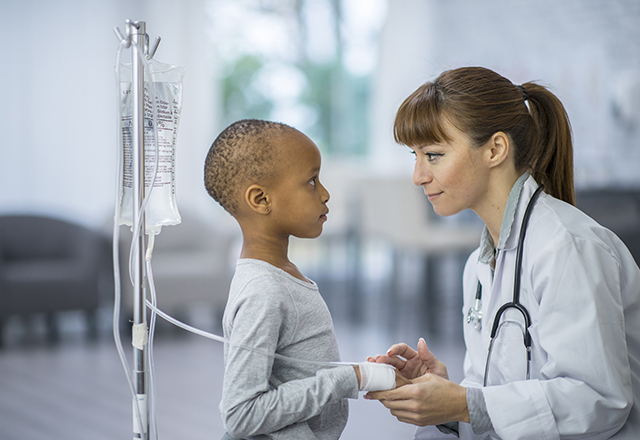COVID-19 has caused many who struggle with chronic conditions to be fearful and seek meaningful answers. The Washington Post aimed to provide specific answers to questions about COVID and cancer patients in a live segment titled Chasing Cancer. Featuring Siddhartha Mukherjee, a Pulitzer Prize-winning author and oncologist at Columbia University, and Otis Brawley, former executive vice president of the American Cancer Society and oncologist at the Johns Hopkins University School of Medicine, the segment explains how COVID-19 will widen preexisting cancer disparities.
Before discussing the intersection with cancer, Mukherjee spoke about COVID-19 broadly. He expressed concern for the reopening of many states, especially in the South, often without mandatory masking or other protections. He acknowledged the fear of many Americans that keeping businesses shut down may cripple the economy, but argues that without a proper public health approach, another shutdown will be necessary and could make the economy even worse. “I would implore, really implore the governors of Florida and Arizona and Texas to take this extremely seriously,” Mukherjee said. When asked about the vaccine efforts, he touched on the importance of trusting the scientific system and vaccines, noting that it takes vaccinated individuals, not just the existence of a vaccine, to have a real effect. In terms of the timeline, he noted that most people believe having a vaccine for COVID-19 by the middle of next summer is extremely ambitious but possible.
As an oncologist, Mukherjee has a unique opportunity to observe the struggles of cancer patients during the pandemic. In addition to expressing concern that cancer screenings have declined as routine hospital visits have decreased, he encourages cancer patients to keep up with their chemotherapy, radiotherapy and surgical therapy during COVID. He noted that most cancer centers have taken the necessary precautions to keep outpatient chemotherapy areas safe, and assures the public that COVID-19 research has not hindered cancer research, although recruitment for clinical trials has slowed. Mukherjee highlighted that as we start to do more telemedicine, its inaccessibility for minorities and those living in rural areas may exacerbate existing cancer disparities. Otis Brawley discussed these disparities further.
“The COVID pandemic really exposed a gaping wound in American society, and it’s really based on socioeconomics,” Brawley said. He highlighted that Latinx, Black, and poor white Americans face higher death rates from cancer than wealthy white Americans. He stated that systemic racism and health inequality are linked, acknowledging that even when you control for access to health care, discrimination can hinder proper care. Brawley referenced a study in the 1890s that found that 7% of Black women in Georgia who are diagnosed with an early stage curable breast cancer get no treatment once diagnosed. Startlingly, this particular disparity has held into the 2000s.
In particular reference to COVID, Brawley predicts a 2%–3% increase in both the breast and colon cancer death rate due to the pandemic shutdown, explicitly attributed to the delay in cancer treatment. He estimates that there will be 120,000 more deaths, stating that if the U.S. had responded to the pandemic the way Germany had, it would have only been around 36,000 more, and if we had responded like South Korea, it would have only been around 1,500 more. Clearly, the delayed response to the pandemic has cost lives.
In Chasing Cancer, insights from Mukherjee and Brawley helped fill the gap in public knowledge about COVID-19 and its significant effect on cancer patients. The delayed U.S. response to the pandemic adds hurdles for cancer patients, especially those already discriminated against, and will cost many lives. Hopefully, cancer patients will heed the advice of Mukherjee and Brawley to continue with treatment and regular screenings, which will help reduce the projected pandemic-related cancer deaths.
Related content
- The Student Scientists Behind the (Future) Coronavirus Cure
- Novel Coronavirus Research Compendium – A Collaborative Effort
- Uncovering a Troubling Truth: When Health Care Isn’t Created Equal
Want to read more from the Johns Hopkins School of Medicine? Subscribe to the Biomedical Odyssey blog and receive new posts directly in your inbox.

Pingback: Cancer in the Time of Coronavirus – Biomedical Odyssey
Comments are closed.